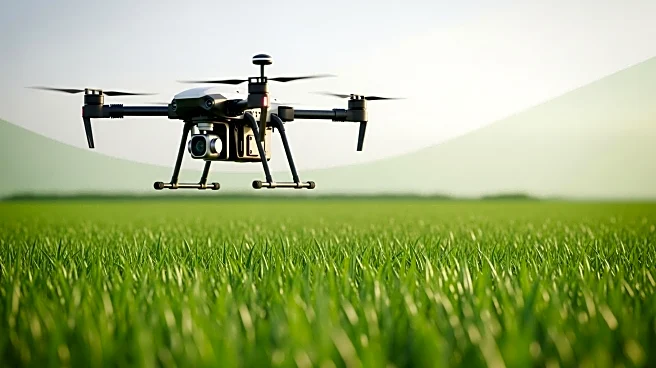What's Happening?
Oklahoma State University (OSU) is set to host its annual Rural Economic Outlook Conference on October 8, focusing on the integration of artificial intelligence (AI) in agriculture. The event aims to provide insights to producers, agricultural lenders, and policymakers about the current and future applications of AI in the agricultural sector. Keynote speaker Heather Hampton-Knodle, a producer and former member of the FCC Precision Ag Task Force, will discuss the transformative potential of AI in food and rural economics. The conference will also feature an AI technology panel, including OSU faculty and industry experts, to explore practical applications such as drones and wireless fencing. Additionally, the conference will cover economic outlooks with presentations from experts like Darryl Peel and James Mitchell on livestock markets, and Todd Hubbs on grain markets.
Why It's Important?
The focus on AI in agriculture at the OSU conference underscores the growing importance of technology in enhancing agricultural productivity and sustainability. As AI tools become more prevalent, they offer significant potential to optimize farm operations, improve crop yields, and manage resources more efficiently. This shift could lead to increased profitability for farmers and a more sustainable agricultural industry. The conference serves as a platform for stakeholders to understand and adopt these technologies, potentially leading to widespread changes in farming practices. The involvement of experts and policymakers highlights the strategic importance of AI in shaping the future of agriculture, which could have far-reaching implications for food security and rural economies.
What's Next?
Following the conference, attendees are expected to explore the implementation of AI technologies in their operations. The insights gained could lead to increased adoption of AI tools across the agricultural sector. Policymakers and industry leaders may also consider developing frameworks to support the integration of AI in agriculture, addressing challenges such as data privacy and infrastructure needs. The discussions and outcomes from the conference could influence future agricultural policies and investment in technology-driven solutions.










